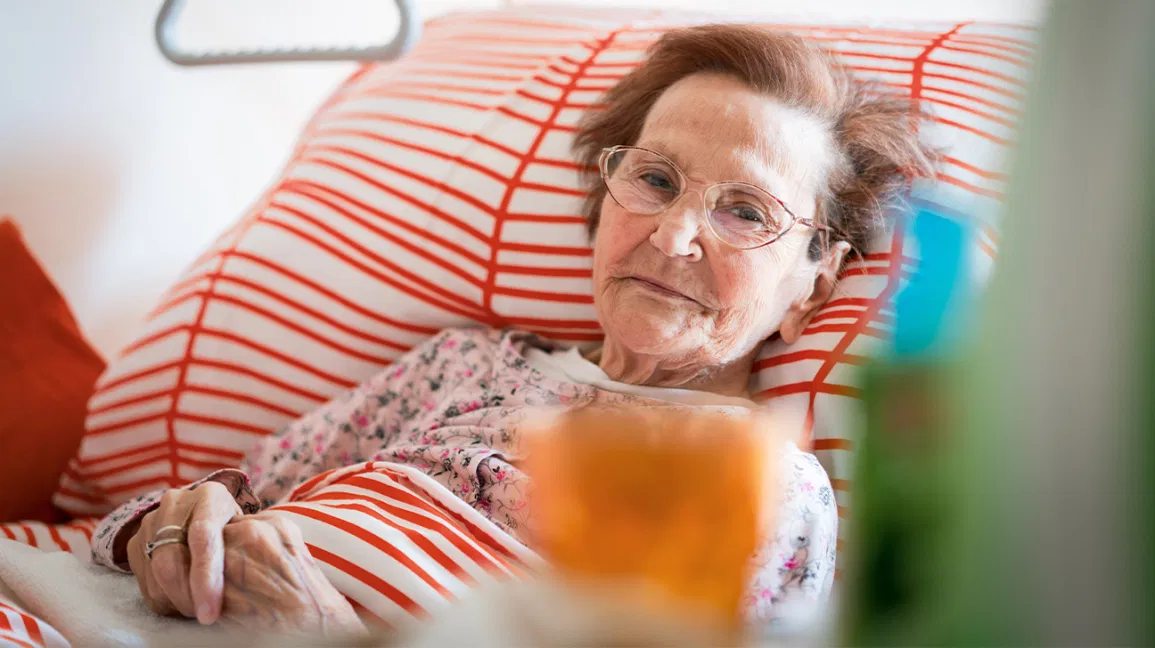As we get older, our risk of contracting an infection increases. This is because our immune system begins to decline, making us more susceptible to infections.
In this article, we will discuss the most common infections in older adults, and how to prevent and treat them. We will also provide useful tips for seniors who are struggling with specific infections.
1 Urinary Tract Infections
One of the most common infections in older adults is urinary tract infection (UTI). UTIs are caused by bacteria that gets into the urinary system through the urethra or vagina. Symptoms of a UTI can include pain while passing urine, frequency and urgency to urinate, pelvic discomfort, and a bad smell from the urine.
Preventing Methods
The best way to prevent UTIs is to keep your urinary system clean. This means washing your genital area regularly and avoiding sexual contact during periods of high stress (like during a fever). If you do get a UTI, antibiotics are the most effective treatment.
Treatments
If you experience symptoms of a UTI, drink plenty of fluids and take over-the-counter medications like ibuprofen or acetaminophen . If you have a UTI caused by E. Coli, antibiotic treatment is required. In rare cases, surgery may be necessary to remove the infected kidney or bladder. We also advise you to see a doctor as soon as possible because UTI can cause bacterial pneumonia if left untreated.
2 Skin Infections
One of the most common skin infections in older adults is fungal infection. Fungal infections can occur anywhere on the body, but are more common on areas that are wet (like the feet and hands), cold, or diabetic. Symptoms of a fungal infection include redness, itching, and pain.
What to Do To Avoid Skin Infections
To avoid skin infections, keep your body dry and avoid touching your face or other moist areas. If you do get a fungal infection, use antifungal cream to treat the area. In some cases, antibiotics may also be required.
Handling Skin Infections
If you experience symptoms of a skin infection, bathe the affected area in warm water and soap. Apply an over-the-counter cream to dry areas. If the skin infection is severe, see your doctor for antibiotics, or get nursing help as soon as possible.
3 Gastrointestinal
Gastrointestinal (GI) problems are the most common health problem in elderly patients. GI problems can cause nausea, vomiting, diarrhea, constipation, and abdominal pain. The causes of GI problems may include aging, chronic illnesses or medications, impaired digestion due to arthritis or a disability , and poor eating habits.
One in five elderly people in the United States over the age of 50 will have a gastrointestinal (GI) tract infection during their lifetime. This includes gastritis, GERD, and pancreatitis.
How to Treat Gastrointestinal Infections
Treatment for gastrointestinal infections will depend on the cause of the infection. If you are experiencing nausea, vomiting, diarrhea, or abdominal pain , see your doctor immediately. In some cases, antibiotics may be required to clear the infection.
If you have GERD , lifestyle changes (like quitting smoking and drinking alcohol) can help improve your symptoms. Pepto-Bismol (for relief of stomach pain ) is also a common medication used to treat GERD .
4 Pneumonia and Influenza
Pneumonia and influenza are two highly contagious respiratory illnesses that can be particularly serious in seniors. Pneumonia is an infection of the lungs, and flu is an infection of the nose, throat, or lungs. Both conditions can cause severe illness if not treated immediately .
Ways to Prevent Pneumonia and Influenza
Prevention of pneumonia and influenza depends on good hygiene habits and getting the flu and pneumococcal vaccine each year. Vaccination can help protect you from serious illness, death, or even paralysis .
If you experience any respiratory symptoms (like fever, cough , shortness of breath), see your doctor as soon as possible. If you are diagnosed with pneumonia or Influenza , treatment will include antibiotics to clear the infection and rest to help heal your lungs.
Temperature Can Affect Infection Rate
One of the ways that bacteria can multiply is by causing your body temperature to rise. This is why people with a fever may have a higher risk of infection. Try to take measures to reduce your fever, such as drinking plenty of fluids and avoiding strenuous activity.
Bottom Line
if you have any of these infections or signs you can get help from our home care agency we will provide you with the best health care services and our caregiver will take care of everything that you need to live happier and healthier.
We offer In-Home Care, Alzheimer’s & Dementia Care, Movement Disorders, Nursing Home Care and more services so you can call us by dialing +1 614-710-0078 or by filling out the Contact Us Form to get quality home care services.


 Home
Home









